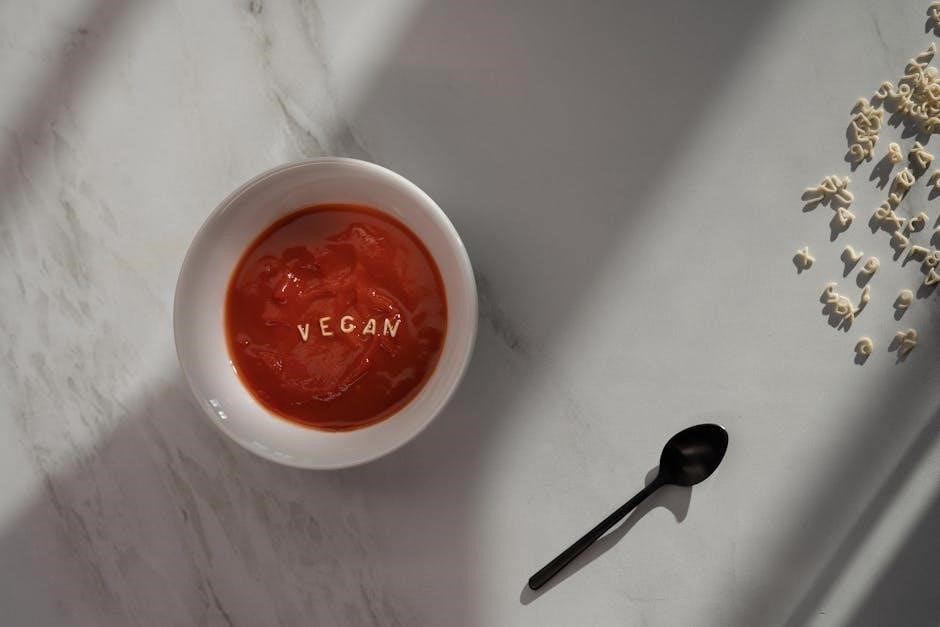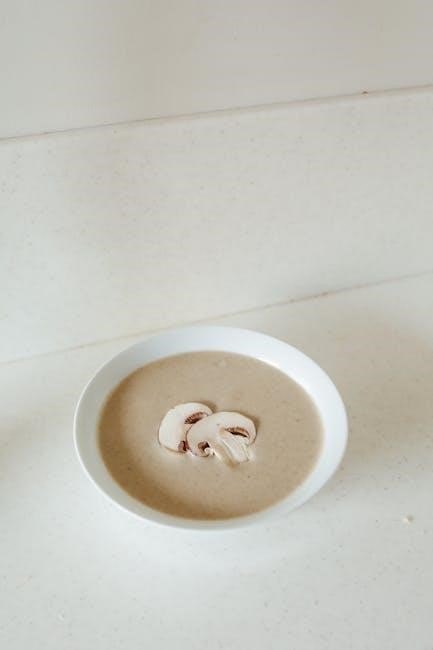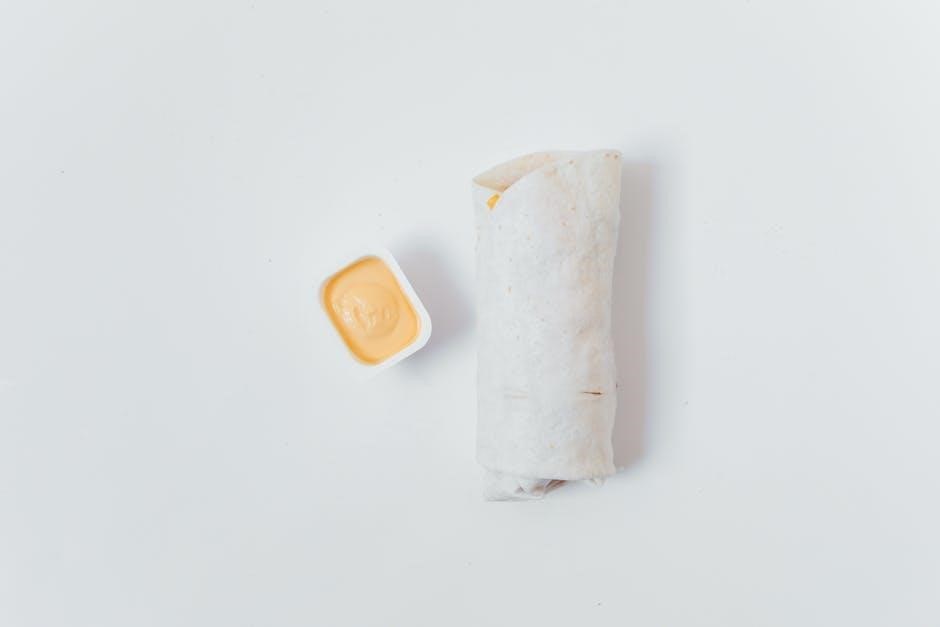Clean bulking focuses on gaining muscle mass through a calorie-surplus diet of nutrient-dense‚ whole foods‚ avoiding unhealthy fats and processed foods for sustainable‚ lean growth.
What is Clean Bulking?
Clean bulking is a strategic approach to muscle building that emphasizes nutrient-dense‚ whole foods to achieve a calorie surplus while minimizing fat gain. It focuses on consuming lean proteins‚ complex carbohydrates‚ and healthy fats‚ ensuring a balanced macronutrient intake. Unlike dirty bulking‚ which relies on processed foods‚ clean bulking prioritizes quality over quantity‚ promoting sustainable muscle growth. By maintaining a slight calorie surplus and adhering to a structured meal plan‚ individuals can build lean muscle mass effectively. This method is ideal for those seeking long-term body composition improvements without excessive fat accumulation.
Clean bulking offers numerous benefits‚ including lean muscle growth‚ improved body composition‚ and enhanced overall health. By focusing on nutrient-dense foods‚ it supports better digestion and higher energy levels. This approach minimizes fat gain‚ allowing for a more defined physique. Clean bulking also promotes sustainable results‚ as it avoids the negative effects of processed foods. Additionally‚ it fosters healthier eating habits and reduces the risk of chronic diseases. With a structured meal plan‚ individuals can achieve their fitness goals while maintaining long-term wellness. This method is particularly favored by athletes and bodybuilders seeking efficient‚ healthy muscle development. Clean bulking emphasizes nutrient-dense‚ whole foods to create a calorie surplus‚ prioritizing lean muscle growth and minimal fat gain. In contrast‚ dirty bulking focuses on consuming high-calorie‚ often processed foods to rapidly increase weight‚ leading to significant fat accumulation. Clean bulking supports long-term health and sustainable results‚ while dirty bulking risks negative health outcomes. The key difference lies in food quality and balance‚ making clean bulking a healthier‚ more disciplined approach for athletes and bodybuilders aiming for optimal body composition without compromising overall wellness. This distinction is crucial for those seeking efficient‚ healthy muscle development. Understanding caloric needs is crucial for clean bulking. Calculate your surplus based on weight‚ activity‚ and goals. Track progress to adjust intake for optimal muscle growth. Calculating daily caloric requirements for clean bulking involves determining your Total Daily Energy Expenditure (TDEE) and adding a surplus. Start with your maintenance calories‚ then add 250-500 calories to promote muscle growth. For example‚ if your TDEE is 2‚500 calories‚ aim for 2‚750-3‚000 calories daily. Adjust based on progress‚ ensuring gradual weight gain of 0.5-1 pound per week. Use online calculators or consult a nutritionist for precise numbers. Consistency and tracking are key to avoid excessive fat gain while supporting lean muscle development. A clean bulk meal plan emphasizes a balanced macronutrient breakdown to support muscle growth. Aim for 25-30% of calories from protein (1.2-2.2g per kg of body weight) to repair and build muscle tissue. Carbohydrates should make up 45-50% of calories‚ focusing on complex carbs like whole grains‚ fruits‚ and vegetables for sustained energy. Fats‚ at 20-25% of calories‚ should come from healthy sources like avocados‚ nuts‚ and olive oil to support hormone production. This balanced approach ensures lean muscle gain while minimizing fat storage. Consistency and proper tracking are key to optimizing results. Caloric intake must be adjusted regularly to ensure steady muscle growth without excess fat gain. Start with a modest surplus of 5-10% above maintenance calories. Monitor weight and body fat weekly; if progress stalls‚ increase calories by 50-100. Conversely‚ if fat gain is too rapid‚ reduce the surplus slightly. Adjust macronutrient ratios as needed‚ maintaining protein levels but tweaking carbs and fats. This adaptive approach ensures sustained progress and keeps the focus on lean muscle development. Regular tracking and adjustments are crucial for long-term success in a clean bulk. Stay consistent and patient for optimal results. Focus on whole‚ nutrient-dense foods like lean proteins‚ complex carbs‚ and healthy fats to support muscle growth and overall health during your clean bulk journey. Whole‚ nutrient-dense foods are essential for clean bulking as they provide the necessary vitamins‚ minerals‚ and fiber to support muscle growth and overall health. These foods‚ such as lean proteins‚ complex carbohydrates‚ and healthy fats‚ help maintain a balanced diet while minimizing empty calories. By focusing on unprocessed ingredients‚ you ensure your body receives the nutrients needed for optimal performance and recovery. This approach also reduces the risk of consuming unhealthy additives found in processed foods‚ promoting a leaner and more sustainable bulk. Consistency with whole foods is key to achieving your muscle-building goals effectively. High-quality protein is crucial for muscle repair and growth during a clean bulk. Opt for lean meats like chicken‚ turkey‚ and fish‚ as well as plant-based options such as beans‚ lentils‚ and tofu. Eggs‚ Greek yogurt‚ and cottage cheese are also excellent sources of protein. These foods provide essential amino acids that support muscle synthesis. Aim to include a protein-rich food in every meal to meet your daily requirements. Varying your protein sources ensures a balanced intake of nutrients‚ promoting optimal muscle growth and recovery. Prioritize whole‚ unprocessed proteins to align with your clean bulking goals; Healthy carbohydrates and fats are essential for energy and hormone production during a clean bulk. Focus on complex carbs like whole grains‚ sweet potatoes‚ and oats‚ which provide sustained energy. Include healthy fats such as avocados‚ nuts‚ and olive oil for essential fatty acids. These nutrients support muscle recovery and overall health. Avoid processed carbs and unhealthy fats to maintain a lean physique. Balancing carbs and fats ensures steady energy levels and supports muscle growth without excess fat gain. Incorporate these foods in moderation to align with your calorie surplus goals while maintaining a clean diet. A sample clean bulk meal plan provides structured‚ nutrient-dense meals to fuel muscle growth. Includes high-protein‚ complex carbs‚ and healthy fats‚ designed for lean gains and minimal fat storage. Breakfast is crucial for kickstarting your day and fueling muscle growth. Opt for high-protein options like scrambled eggs with avocado and whole-grain toast‚ or Greek yogurt with berries and granola. Oatmeal with nuts and seeds is another excellent choice‚ providing sustained energy. For a quick meal‚ a protein smoothie with spinach‚ banana‚ and almond milk works well. Ensure each breakfast includes a balance of protein‚ healthy fats‚ and complex carbs to maintain energy levels and support muscle recovery. These options are nutrient-dense and align with clean bulking principles‚ avoiding processed ingredients. For lunch and dinner‚ focus on balanced meals rich in protein‚ complex carbs‚ and healthy fats. Grilled chicken breast with quinoa and steamed vegetables is an excellent option‚ providing lean protein and fiber. Salmon paired with brown rice and a variety of colorful veggies offers omega-3 fatty acids and sustained energy. Turkey or lean beef wraps with whole-grain tortillas‚ lettuce‚ and avocado are also great choices. Ensure each meal includes a protein source‚ a carb option like sweet potatoes or whole grains‚ and a mix of vegetables for essential nutrients. These meals support muscle growth while keeping fat gain minimal‚ aligning with clean bulking goals. Snacks and supplements play a crucial role in maintaining a calorie surplus while adhering to clean bulking principles. Opt for nutrient-dense snacks like protein shakes‚ mixed nuts‚ or fresh fruit with peanut butter. Greek yogurt with berries and a drizzle of honey is another excellent choice. Supplements such as whey protein powder can help meet daily protein goals‚ while creatine supports muscle strength and endurance. Ensure snacks are balanced‚ avoiding excessive sugar or unhealthy fats. These additions complement meals‚ providing sustained energy and supporting muscle recovery without compromising the integrity of your clean bulk diet. Plan meals weekly‚ focusing on whole foods like lean proteins‚ complex carbs‚ and healthy fats. Grocery lists should include staples like chicken‚ fish‚ eggs‚ whole grains‚ and vegetables. Planning meals for the week is essential for a clean bulk. Start by outlining breakfast‚ lunch‚ dinner‚ and snack options that align with your calorie and macronutrient goals. Focus on whole‚ nutrient-dense foods like lean proteins‚ complex carbs‚ and healthy fats. Structure meals to balance protein‚ carbs‚ and fats‚ ensuring adequate fuel for workouts and recovery. For example‚ include protein-rich breakfasts‚ balanced lunches with whole grains and vegetables‚ and hearty dinners with lean meats and complex carbs. Snacks should be nutrient-dense‚ like nuts or fruits‚ to maintain energy levels. Adjust meal portions based on workout intensity and progress‚ ensuring consistency and sustainability. A clean bulk grocery list should focus on whole‚ nutrient-dense foods. Prioritize lean proteins like chicken‚ fish‚ eggs‚ and Greek yogurt. Include complex carbs such as brown rice‚ oats‚ quinoa‚ and whole-grain bread. Healthy fats like avocados‚ nuts‚ and olive oil are also crucial. Don’t forget fruits and vegetables for essential vitamins and fiber—options like berries‚ broccoli‚ and spinach are great. Incorporate legumes for additional protein and carbs. Dairy products like cottage cheese and milk can support muscle growth. Finally‚ include snacks like almonds and protein bars for convenience. These staples will help you build muscle while maintaining a balanced diet. Effective meal prep is key to maintaining a clean bulk diet. Start by planning your meals for the week‚ ensuring each dish aligns with your calorie and macronutrient goals. Use airtight containers to store pre-cooked meals‚ keeping them fresh for up to 3-4 days. Pre-cook proteins like chicken‚ fish‚ and eggs‚ and prepare complex carbs such as rice‚ quinoa‚ and sweet potatoes. Portion out snacks like nuts‚ seeds‚ and protein bars for easy access. Label and organize meals by day to avoid confusion. Finally‚ keep your meals varied to stay motivated and ensure you’re getting a broad range of nutrients. Regularly monitor weight‚ body fat‚ and muscle mass to ensure lean gains. Adjust calorie intake and macronutrient ratios as needed to maintain steady progress without excess fat storage. Tracking weight and body fat is crucial for clean bulking. Use a scale weekly to monitor weight gain‚ aiming for 0.5-1 pound per week. Body fat percentage should be measured monthly to ensure fat gain remains minimal. Tools like calipers or a DEXA scan provide accurate readings. Maintaining a balance ensures muscle growth without excessive fat accumulation. Adjusting calorie intake based on these metrics helps sustain a lean physique. Consistency in tracking allows for precise adjustments‚ optimizing muscle gain while minimizing fat storage. This approach supports long-term body composition goals and overall health. Regularly monitoring progress allows for necessary adjustments to the meal plan. If weight gain is too slow‚ increase calorie intake by 5-10%; Conversely‚ if fat gain exceeds muscle growth‚ reduce calories slightly. Macronutrient ratios may also need tweaking to optimize results. Ensure protein intake remains high to support muscle synthesis‚ while adjusting carbs and fats based on energy needs. Additionally‚ meal timing and portion sizes can be modified to align with workout intensity and recovery demands. Continuous adjustments ensure the plan remains effective and aligned with goals‚ promoting sustainable muscle growth without excessive fat accumulation. Overeating and neglecting macronutrient balance are common pitfalls. Avoid excessive calorie intake that leads to fat gain and ensure meals are balanced with protein‚ carbs‚ and healthy fats. Overeating is a common mistake during clean bulking‚ leading to excessive fat gain. Many individuals consume far more calories than needed‚ believing it accelerates muscle growth. However‚ this approach often results in unwanted fat accumulation. Similarly‚ undertraining can hinder progress‚ as insufficient stimulus fails to promote significant muscle development. It’s crucial to balance calorie intake with consistent‚ intense workouts. Tracking progress and adjusting portions ensures sustainable muscle growth without compromising body composition. A disciplined approach to both diet and training is essential for achieving lean‚ defined results. Avoid the temptation to overindulge and stay committed to your structured plan. Neglecting macronutrient balance is a common mistake in clean bulking. Many individuals focus solely on protein‚ neglecting carbohydrates and healthy fats‚ which are essential for energy and hormone production. A lack of balance can lead to poor recovery‚ low energy levels‚ and suboptimal muscle growth. Aim for a balanced intake of protein‚ complex carbs‚ and healthy fats to support overall health and performance. For example‚ a daily ratio of 25-30% protein‚ 40-50% carbs‚ and 25-30% fats is often recommended. Ensure each meal includes a mix of these macronutrients to fuel muscle growth and maintain bodily functions effectively. Clean bulking is a sustainable approach to building lean muscle. Consistency and patience are key. Stick to your plan‚ and the results will be worth the effort. Clean bulking is a strategic and sustainable method for gaining lean muscle. By focusing on nutrient-dense foods and maintaining a slight calorie surplus‚ you can achieve muscle growth without excessive fat. It requires discipline and consistency‚ but the long-term benefits are significant. Avoid the temptation of quick fixes like dirty bulking‚ as they often lead to unwanted fat gain. With dedication and the right meal plan‚ clean bulking can help you build a strong‚ healthy physique. Remember‚ patience and persistence are key to seeing lasting results. Consistency is the cornerstone of a successful clean bulk journey. It’s easy to get discouraged when progress seems slow‚ but remember‚ muscle growth takes time. Stay committed to your meal plan and training regimen. Celebrate small victories‚ like increased strength or improved physique‚ to keep motivation high. Surround yourself with supportive people and track your progress to stay accountable. With persistence and patience‚ you’ll achieve your goals and build a lean‚ strong body. Keep pushing forward—every meal and every workout brings you closer to success. Stay dedicated and embrace the process for lasting results.Benefits of Clean Bulking
How Clean Bulking Differs from Dirty Bulking

Understanding Caloric Needs for Clean Bulking
Calculating Daily Caloric Requirements
Macronutrient Breakdown for Muscle Growth

Adjusting Calories Based on Progress

Food Selection for a Clean Bulk
Importance of Whole‚ Nutrient-Dense Foods
Best Protein Sources for Muscle Growth

Healthy Carbohydrates and Fats

Sample Clean Bulk Meal Plan
Breakfast Options
Lunch and Dinner Ideas
Snacks and Supplements

Meal Prep and Grocery Tips
Planning Your Meals for the Week
Grocery List Essentials
Meal Prep Strategies
Tracking Progress
Monitoring Weight and Body Fat
Adjusting the Meal Plan as Needed

Common Mistakes to Avoid
Overeating and Undertraining
Neglecting Macronutrient Balance
Final Thoughts on Clean Bulking
Encouragement to Stay Consistent
